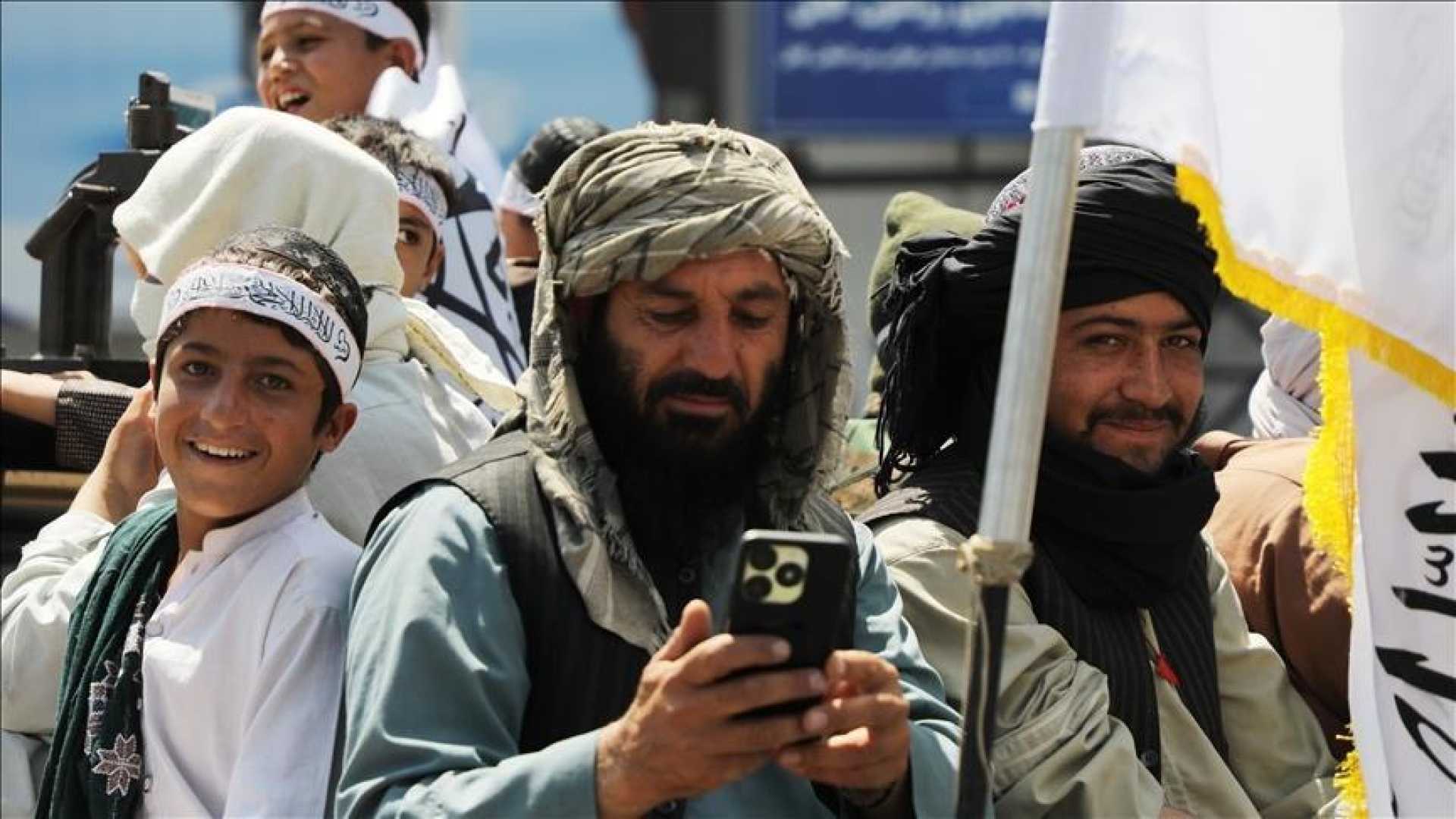World
Afghanistan Faces Total Internet Blackout Amid Taliban Crackdown

Kabul, Afghanistan – Afghanistan experienced a significant internet blackout on Tuesday after the Taliban announced plans to cut off access in a bid to curb what they describe as “immoral activities.” This move has heightened fears of increasing isolation for the country’s 43 million residents living under the militants’ authoritarian regime.
According to the internet monitoring organization Netblocks, a variety of networks throughout Afghanistan were disconnected as of late Monday, impacting telephone services and leading to what they labeled as a “total internet blackout.” Afghans living overseas reported feeling helpless as they struggled to contact family members inside the country.
“From yesterday, there is no communication with a single person,” said Mohammad Hadi, an Afghan residing in New Delhi since 2019. “There is no means to talk, to be sure that they are safe or not.” Hadi conveyed a sense of panic among the Afghan diaspora, who worry about their loved ones cut off from the outside world.
Local media outlet Tolo News TV stated that the shutdown severely disrupted its operations, while international news agencies, including the Associated Press and Agence France-Presse, reported a lack of communication with their Kabul bureaus. This blackout is viewed as one of the most comprehensive and coordinated telecommunications shutdowns since the Taliban regained control in 2021.
The reasons behind the blackout remain unclear, and attempts by CNN to reach Taliban officials for clarification were unsuccessful. Earlier this month, Taliban representatives hinted at plans to restrict internet access to combat what they defined as immoral behaviors.
Haji Zaid, the governor of Balkh province, stated that a new “alternative system” for meeting essential needs would be put in place. However, he did not elaborate on what constitutes “immoral activities,” and the directive reportedly originated from Mawlawi Haibatullah Akhundzada, the Taliban’s supreme leader.
Wahida Faizi, an Afghan journalist now living in Denmark, stressed the emotional impact of the blackout. “It has only been a few hours since the internet was cut off in Afghanistan, but for me, it feels like a lifetime has passed,” Faizi told CNN. “Perhaps we always complained about the slow internet in Afghanistan, but today I have realized that even faulty internet and those simple moments of video calls were such a great blessing.”
Activists express concern that the internet disruption could have severe ramifications for Afghanistan, already facing a humanitarian crisis exacerbated by the Taliban’s return to power. Young girls have been barred from attending school beyond the sixth grade, with many relying on online education provided by international organizations or educators abroad. The blackout threatens to erase those educational opportunities.
Sabena Chaudhry, a communications manager for Women for Afghan Women (WAW), stated that the blackout “is not only silencing millions of Afghans but also extinguishing their lifeline to connect with the outside world.” Chaudhry, based in New York, noted that her organization has lost contact with staff members inside Afghanistan.
The Taliban’s grip on human rights has been tight, especially for women and girls, fostering what the UN Assistance Mission in Afghanistan (UNAMA) called a “climate of fear and intimidation.” Mariam Solaimankhil, an exile member of the previous Afghan government, expressed her anguish on social media, saying, “The silence online without Afghan voices from inside Afghanistan is deafening. My heart hurts – our people are being cut off, and the world is left in darkness without them.”
Solaimankhil urged Elon Musk, the owner of Starlink, to intervene, declaring that Starlink is the only viable method to break through the Taliban’s censorship, although the service is presently unavailable in Afghanistan.












